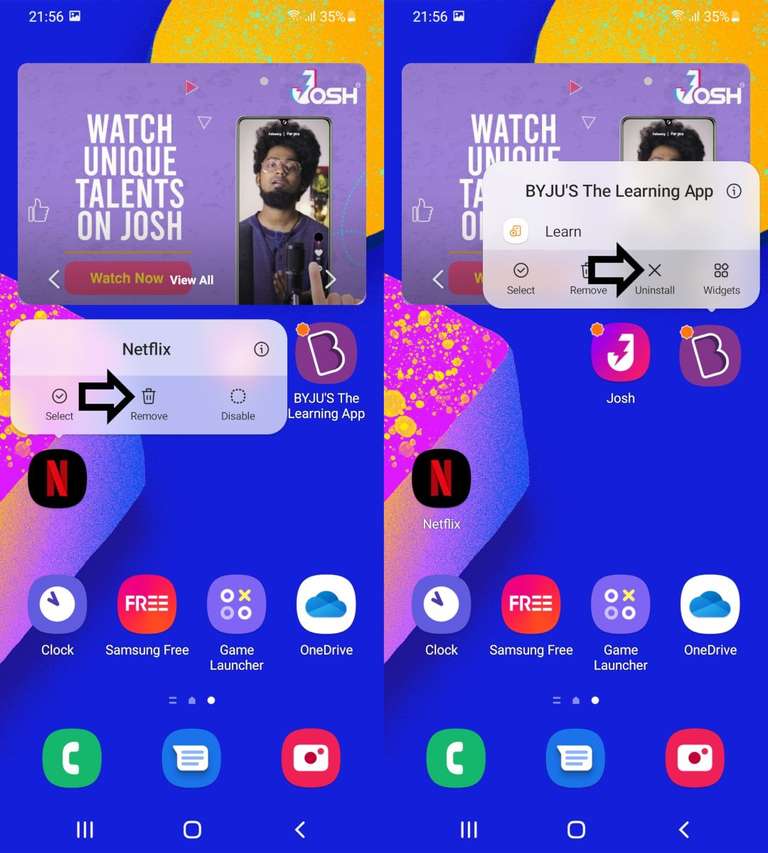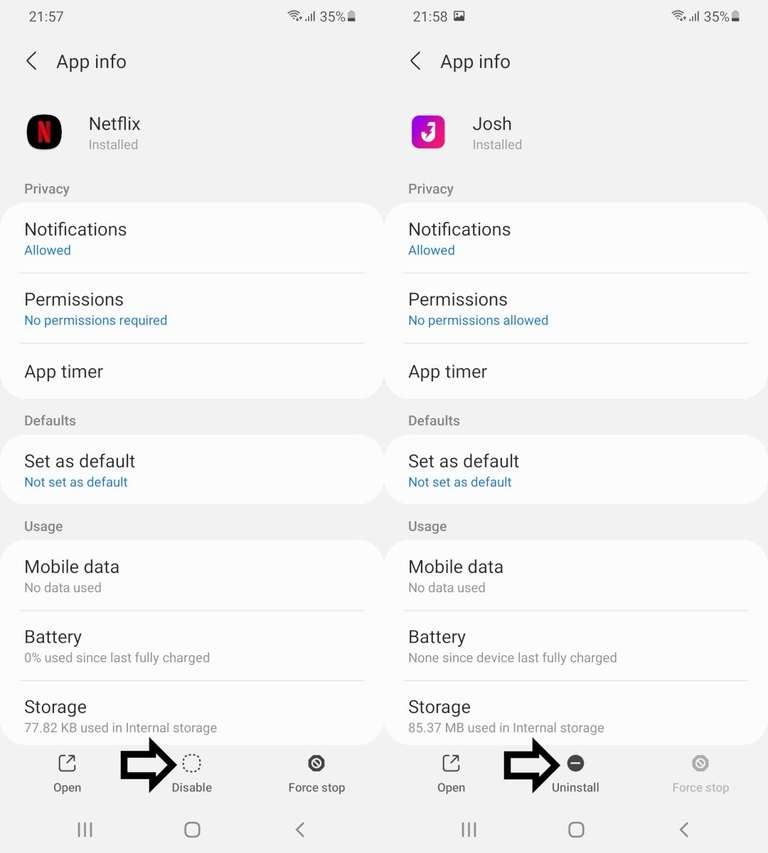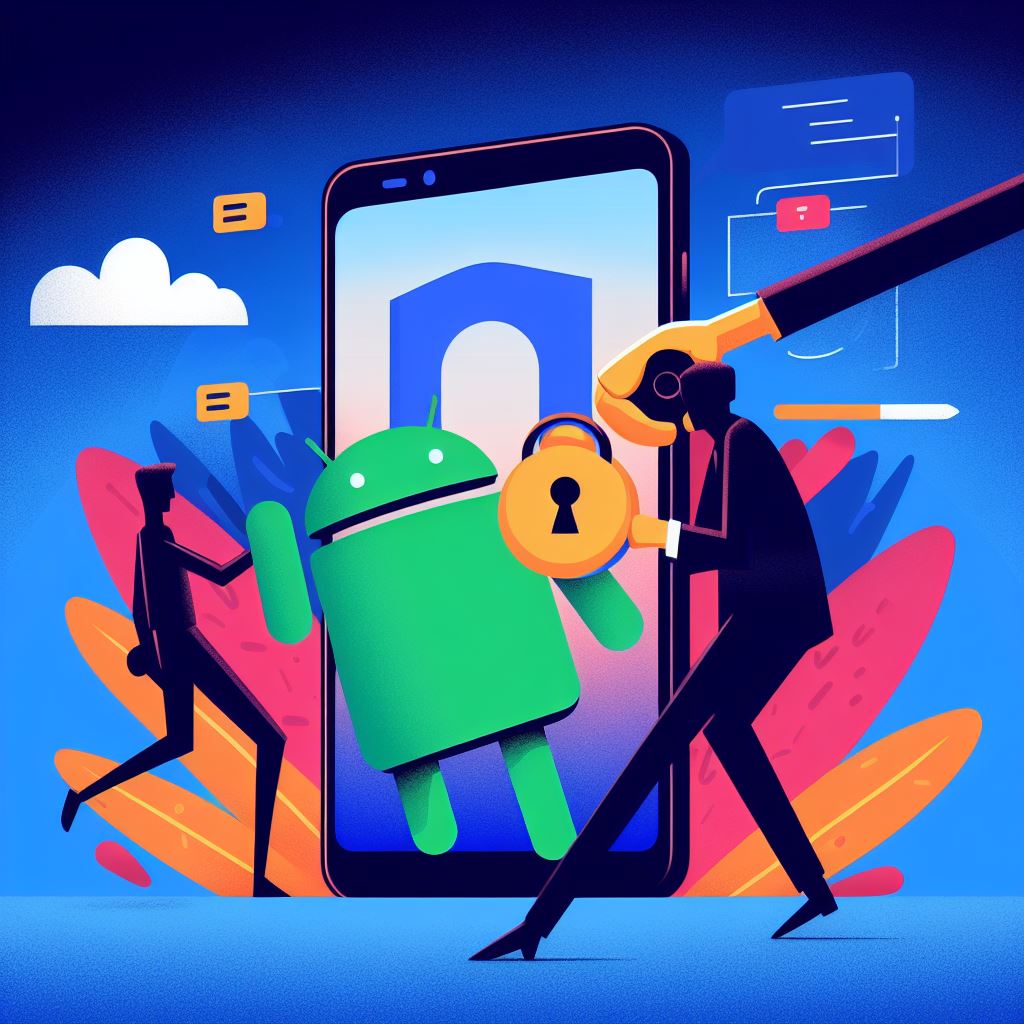Google (and Samsung), we need to talk! Bloatware on new android devices

Have you had the experience of excitedly unboxing your brand new Android smartphone, turning it on and only to then be greeted with a slew of apps that came pre-installed? Even ads maybe? You aren't alone then. In a series of articles, we're going to look at what bloatware is, some examples of its more (IMO) unsavory implementations and finally how you as a user can take back some of the control.
Pre-installed apps, commonly referred to as bloatware, are a common annoyance in the world of Android.
Nothing like purchasing a new device, being all excited to turn it on and only to have the experience killed by greetings from a random bunch of apps I never signed up for. With ads on the homescreen for crying out loud!
Like this lovely homescreen ad carousel I had the pleasure of experiencing! #irony.
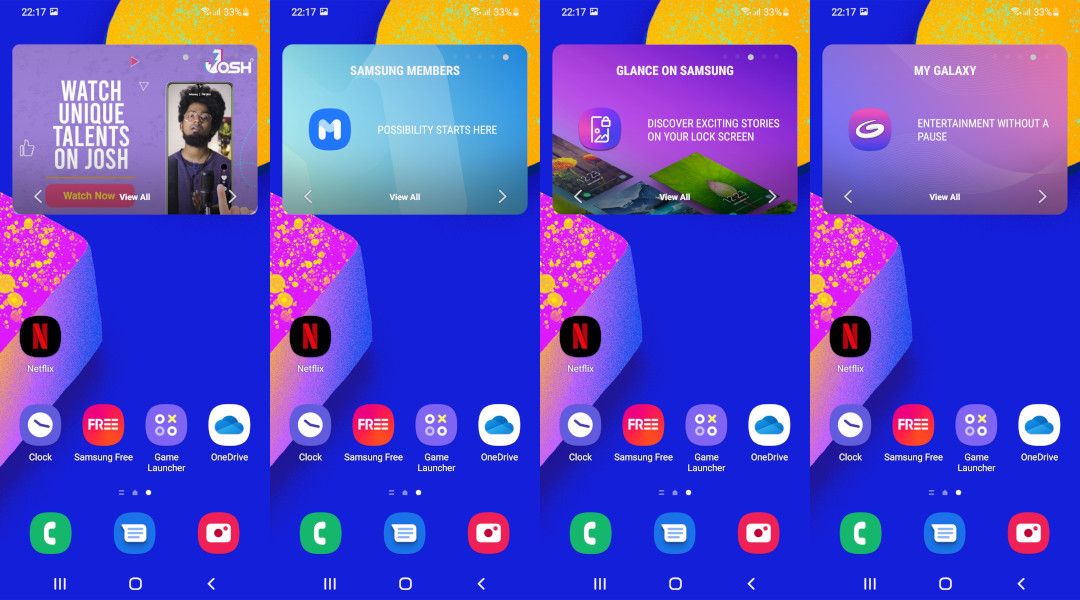
No kind sir, right now I do not want to “WATCH UNIQUE TALENTS ON JOSH” or “Learn from India’s Most Loved Teachers” or the multitude of other things you like to sign me up for.
Yes I am sure. Pinky promise.
Let me finish setting up my phone please.
At some level, its a little insulting, being served ads on a brand new product I paid good money to acquire.
I've been through the dance of debloating new Android smartphones enough times now (are you, like me, the tech support person for family and friends?). And I'm tired.
So tired (and disappointed) in Android OEM's that I'm opening a whole new blog and calling them out.
So why do Android OEM's include bloatware?
Quite simply, revenue.
App makers like Facebook and Netflix pay smartphone OEMs for the privilege of having their apps pre-installed on your smartphones.
Pricing for smartphones in the Android world is super competitive, and at any price range you'll find a couple of dozen models from various OEMs. Heck, major OEM's like Samsung, Oppo & Xiaomi have multiple of their own models 'competing' in the same price range. Profit margins are small (at least in the lower and mid-range segments).
Bundling deals for pre-installing applications are a way for smartphone OEMs to generate additional revenue from selling the same phone. In some cases, this could (maybe) even translate to lower upfront costs for you & I when purchasing the smartphone.
Now for all of you keyboard warriors typing away furiously "BUT NOTHING IS FREE. YOU ARE TRADING YOUR PRIVACY. YOU ARE THE PRODUCT BEING SOLD" or the 'n' number of variations of the above:
- Please pause for a minute
- Take a nice deep, calming breath. Exhale slowlyyyy
- Continue reading until the next section wherein I say: Yes, these are true and valid concerns and I agree with you. Partially. Sort off.
There's a whole separate debate to be had over the pro's & con's of bundling products & services in any field or market (and not just in the mobile phone ecospace).
Take Dell or HP pre-installing McAfee or Norton anti-virus software on their desktops and laptops, or Nvidia / AMD having game bundles with a graphics card launch, or your car dealership selling you a loan / financing or the car's insurance.
It's a problem that's part of many industries and requires a higher level perspective.
And that's a debate that's most certainly much beyond the scope of an article on Android bloatware. Another post maybe.
So, truce?
Pre-installing apps is OK, but some of their flagrant implementations are a no-no!
Smartphones are only as useful as the app they are used with.
So despite all the moaning above, I'm actually OK with pre-installing apps provided:
- It's a well curated list of apps that are popularly used by a large subset of smartphone users
- App installation is opt-in, with explicit consent. When setting up a new phone, a prompt is first displayed asking for permission to install the apps. (Technically this wouldn't make it a "pre-installed" app I guess?)
- Any installed app is user removable, should the user choose to (excluding system critical apps of course)
These expectations are not unreasonable, right?
I wish.
Exhibit A: List of pre-installed apps, 80% of which are not widely popular [IMO]
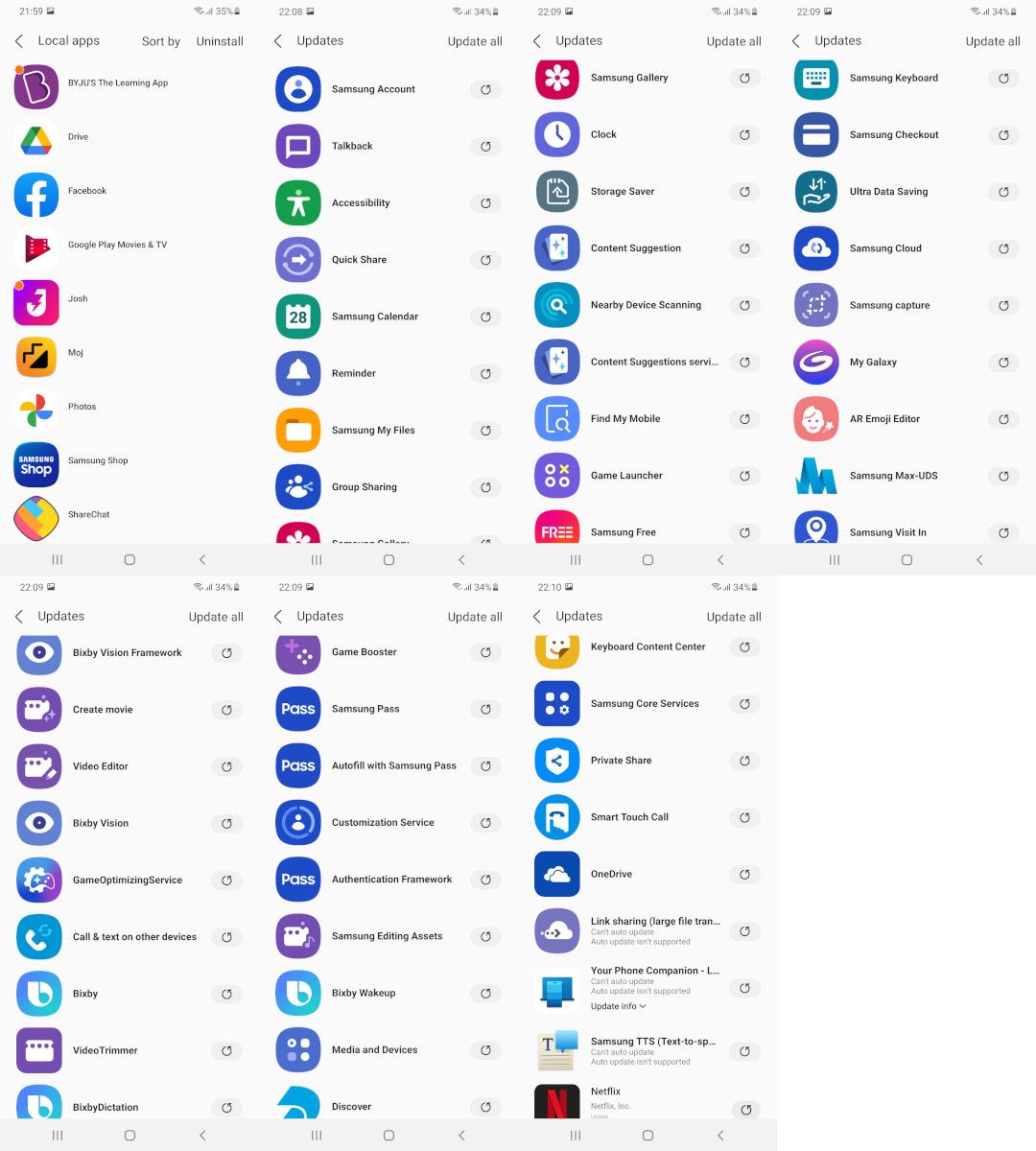
Exhibit B: Apps are installed after user content
To be fair to Samsung, they did prompt before installation of some of the apps (see below), but unfortunately that was only for a miniscule number of apps. In fact, none of the Samsung first party apps were installed after a prompt or consent. That's 40+ apps that I never signed up for!
, we need to talk! Bloatware on new android devices_files/Few-apps-with-confirmation-before-installaiton_lowres.jpg)
Exhibit C: Pre-installed apps that can't be uninstalled (what!!?)
The pre-installed Netflix app cannot be uninstalled (by usual means). And this is just one example. Most of Samsung's own apps fall under the same category as well! Needless to say, such restrictions leave me annoyed and/or frustrated.
Closing comments
This article was part 1 of a 3 article series and is intended to set the baseline for further discussions on this topic.
In the second part, we look into more shady behavior from pre-installed apps [including everyone's favourite data vacuum: Facebook (now Meta)].
And finally, the third part will cover users taking back control with Android Debug Bridge (adb), force removing apps that don't have the usual uninstall option.
A couple of quick caveats
- The objective here is to bring to light the problem of bloatware & pre-installed apps, and subsequently show users ways to undo some of the choices that have been forced on them by smartphone OEM's
- The objective is most definitely not to dunk (only) on Samsung. It just so happened that a new Android smartphone I had access to was from Samsung. Almost all Android smartphone OEMs are equally culpable, just that some implementations are more egregious than others
- The device and firmware I had access to was India specific. Very curious to know how they tailor their firmware in other regions

